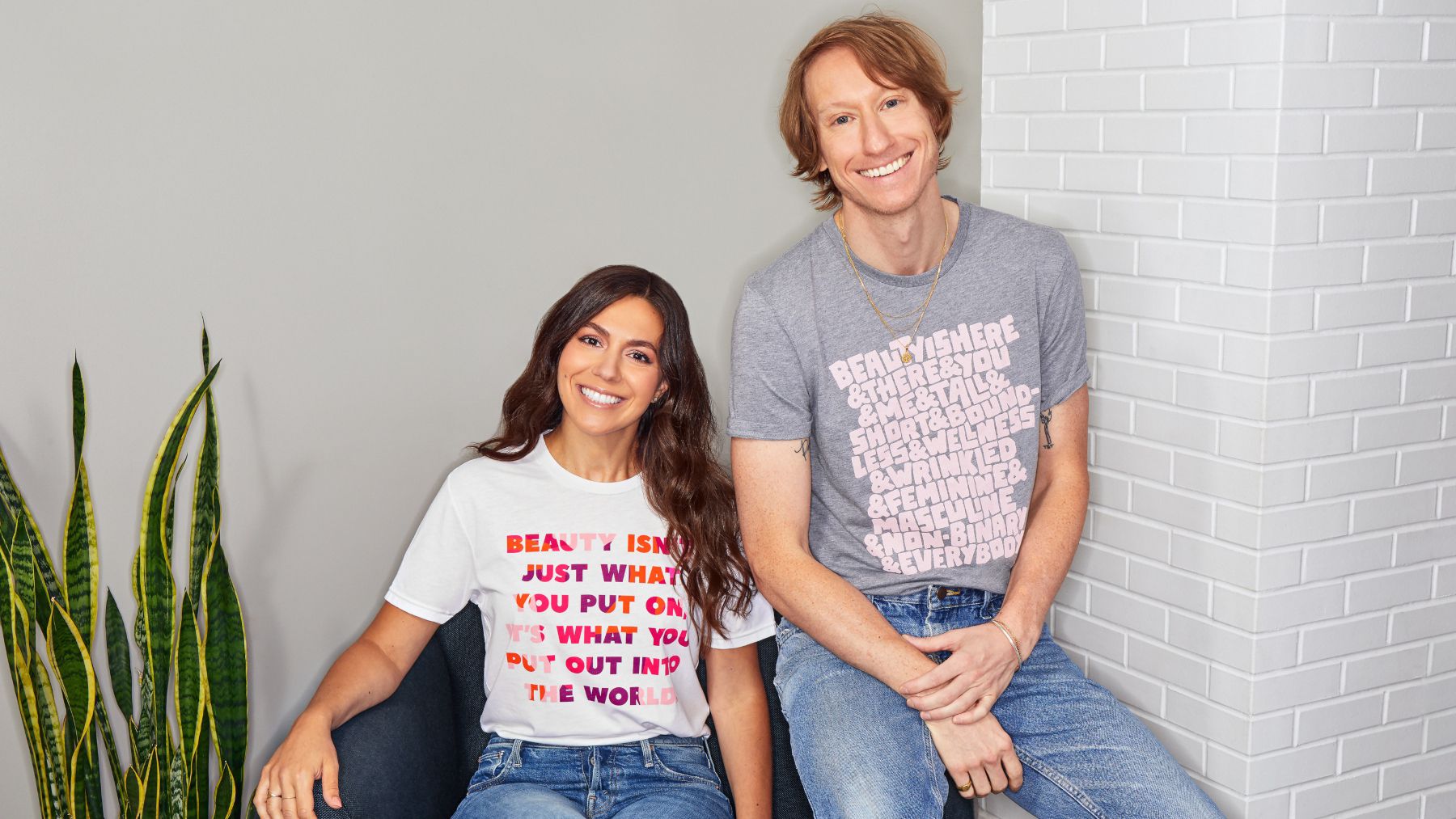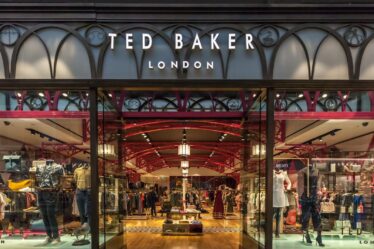
Ulta Beauty wants to channel the “power” of beauty.
That’s the idea behind a new fall campaign from the beauty retailer, a multi-channel effort titled “Beauty&” that dropped earlier this month. The campaign is a collaborative effort with three “cultural leaders” — Meena Harris, the niece of US vice president Kamala Harris and founder of social justice-focused media company Phenomenal; and two artists, Timothy Goodman and muralist Emmy Star Brown — as well as agency partner McCann. The idea, said Karla Davis, vice president of integrated marketing at Ulta Beauty, is to showcase what beauty is capable of when it comes not just to product efficacy but its capacity to make someone feel something, too.
“There are real powers that beauty actually holds. The pandemic really brought those to life pretty significantly,” she said. “You saw people using beauty for self-care, as a means of self-expression, when they were cooped into their own spaces. You even saw people using it as community-like ways to reach out and connect with people … That is what gives beauty brands the space and even the permission to really bring it to the forefront.”
The campaign’s themes are not revolutionary in beauty but are ones that consumers are increasingly demanding beauty brands embody. Rohit Banota, the founder of Jump Accelerator, a beauty-focused accelerator, said that Ulta Beauty’s best bet going forward is to double down on the idea of driving more spending from casual consumers.
“Sephora went more the route of pure discovery store, appealing to beauty aficionados,” said Banota. “But Ulta is following the other strategy of bringing the non-customers into the category.”
Those casual consumers will be even more important as Ulta continues to ramp up its shop-in-shop deal with Target, which first rolled out last year. The most tangible benefit of that deal, in fact, is the opportunity to connect to those consumers who have yet to become full-blown beauty shoppers.
The campaign will run on the traditional channels, including social media, linear television and streaming but will also include new components, like a limited-edition T-shirt collection with three shirts designed by Harris, Brown and Goodman emblazoned with uplifting phrases like “beauty is you and me” and “beauty isn’t just what you put on, but what you put out into the world.”
As part of the campaign, this fall, the brand will also release its first podcast, “The Beauty Of,” a project that’s been years in the making, according to Davis. Hosted by David Lopez, an Ulta professional stylist, the podcast will see Lopez interview guests such as powerlifter Tamara Walcott, body image researcher Virgie Tovar and AM Darke, a professor of art and design at UC Santa Cruz, about topics surrounding both beauty standards and “non-traditional” areas of beauty.
The move to launch a podcast is fitting when you consider that Ulta CEO Dave Kimbell noted on the company’s most recent earnings call that education content, particularly around skin care, has been a boon for the brand in driving growth with its monthly skin-care program, Skinfatuation. While social media offers avenues to present that content, doubling down on it requires a longer-format medium.
This all comes at an exciting — but high-pressure — moment for Ulta. Its more recent earnings report saw sales rise 14.4 percent in stores open at least one year, with overall revenue for the quarter of $2.3 billion. Ulta raised its comparable sales growth outlook to between 9.5 percent and 10.5 percent for the year, from 6 percent to 8 percent previously. Demand for cosmetics and skin care has remained strong even as the turbulent economy has hit apparel sales. The retailer is also expanding its partnership with Target, having opened 186 Ulta shop-in-shops in just over a year, on its way to a long-term goal of 800.
At the same time, Ulta’s largest competitor, Sephora, is ramping up its own shop-in-shop partnership with Kohl’s, announcing plans last month to expand the concept to all Kohl’s stores.
That goal also may have led Ulta to take more of a brand-building approach to this campaign, rather than a more pure sales play, particularly as it looks to compete with Sephora not just as a standalone beauty brand but also as a pop-in shop in a mass-market retailer.
“We fundamentally believe the idea that brand love and those that really can drive a meaningful connection with consumers are going to be the types of brands and businesses that sustain long term,” said Davis. “A large portion of how we bring Ulta Beauty to life is in elevating our overarching brand purpose. It is an ongoing work; it will continue to be as we build not only awareness but really become the retailer of choice for our consumers. It’s core to sustainable growth as a business.”


